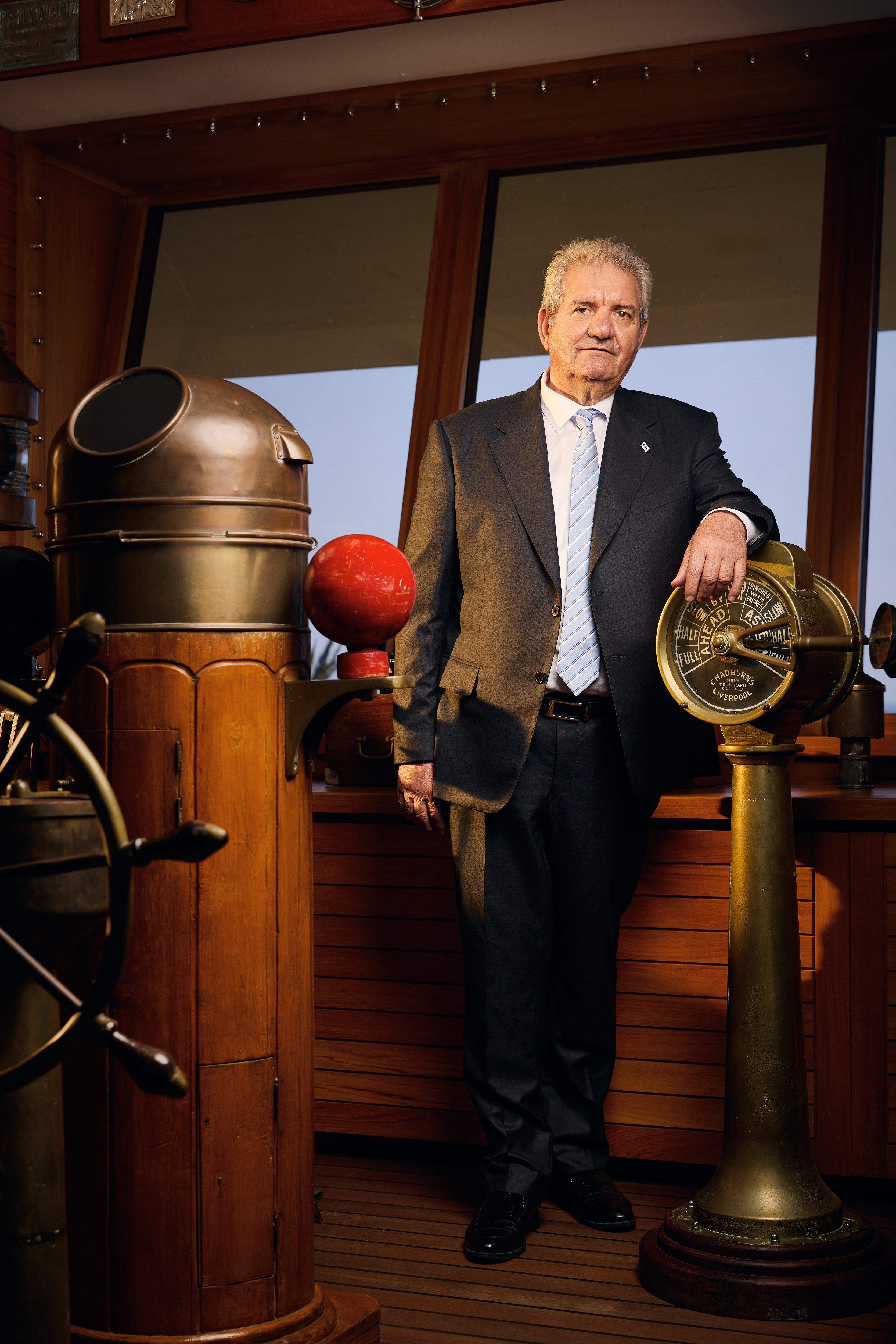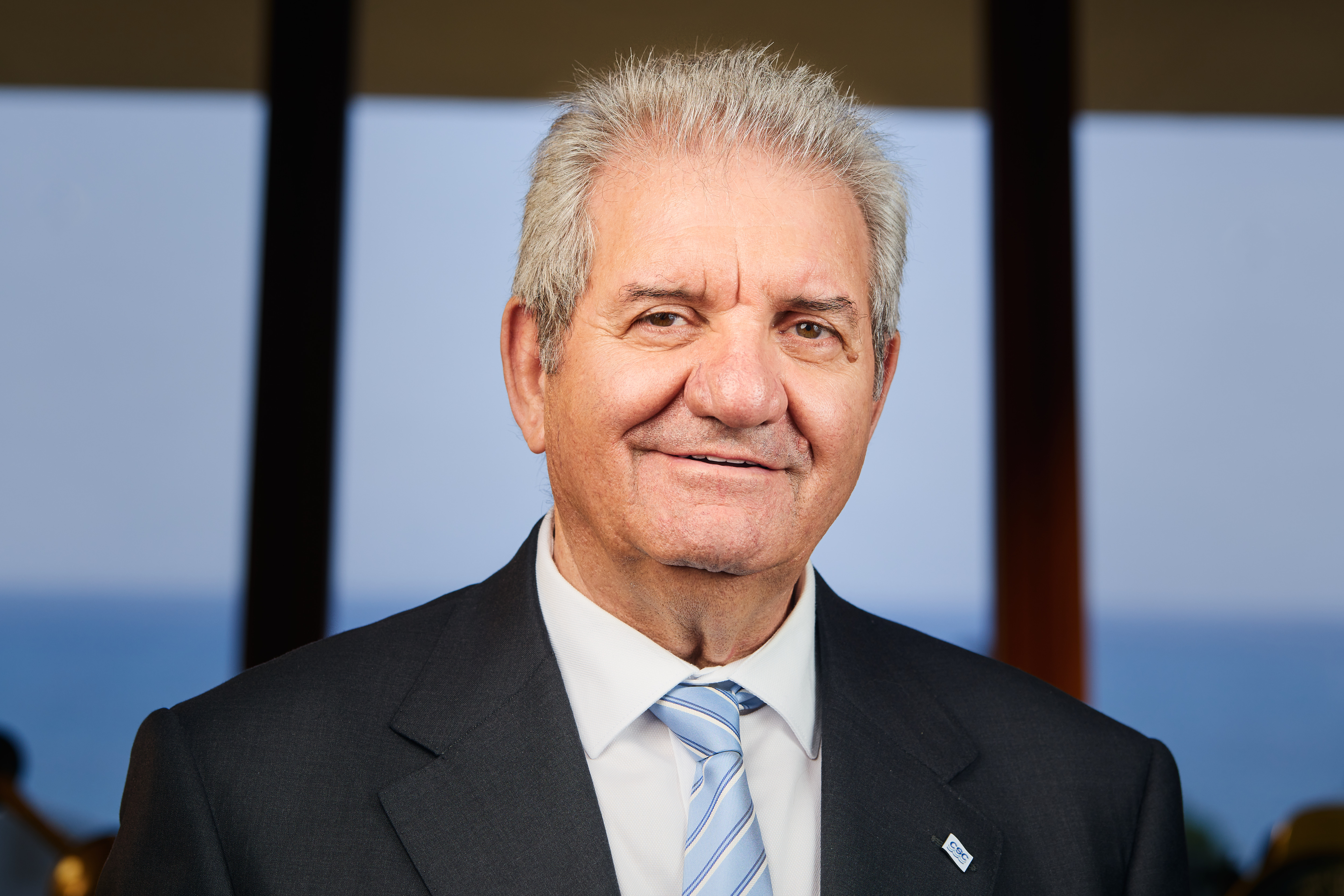The Cyprus Shipping Chamber represents more than 200 shipowning, shipmanagement, chartering and shipping-related companies
When Andreas Neophytou was elected President of the Cyprus Shipping Chamber (CSC) earlier this year, he said his first steps would be defined by three priorities, collaboration with government, practical decarbonisation and regulatory harmonisation.
These, he explained, would shape both his presidency and the path of Cyprus shipping in the years ahead.
As well as leading the Chamber, Neophytou is joint managing director of Marlow Navigation, one of the largest shipmanagement companies in Cyprus, a position that gives him both an industry-wide perspective and hands-on insight into the challenges facing shipowners and operators.
“In my first year, the immediate priorities will focus on two key areas,” he said, pointing first to the need for closer cooperation between the industry and the public sector to ensure that policies are aligned and future-ready.
He explained that since assuming his duties, he and his colleagues had already launched courtesy meetings with government ministers, ambassadors and key partners to reinforce cooperation and brief them on the challenges the industry is facing.
The second, he added, is to continue active participation in international fora on decarbonisation and safety issues, by advocating for globally consistent regulations that can safeguard competitiveness as well as sustainability.
Of the two priorities, he admitted that one is clearly the most difficult.
“The most challenging priority is undoubtedly decarbonisation, particularly in ensuring that it is achieved without undermining the sector’s competitiveness,” he said.
The industry, he explained, has already demonstrated its willingness through significant investments and initiatives to support greener operations, and he stressed that it is determined to continue on this path.
“Only through internationally consistent measures can we avoid market distortions, ensure a level playing field and maintain the resilience of the global supply chain while progressing with the climate goals.”
The Cyprus today represents more than 200 shipowning, shipmanagement, chartering and shipping-related companies.
Neophytou said that this diverse membership, which employs around 5,000 people ashore and some 80,000 seafarers at sea, has always been served on the basis of transparency.
“The Chamber values and respects each one of its members while advocating for the benefit of the entire Cyprus shipping industry,” he explained, noting that since its inception the organisation has safeguarded the interests of all members.
He said that every member’s needs are heard and considered at Board level, with all encouraged to express their views openly during meetings.

“We believe that good decisions can only be made when different perspectives are freely expressed and properly evaluated,” he added, stressing that policies are designed to serve collective interests.
“The Chamber ultimately promotes the interests of Cyprus shipping as ‘One Voice’, and our core values of transparency, fairness and respect are reflected in everything we do”, he said.
Among the initiatives he pointed to as potentially transformative is the ‘One-Stop Shipping Centre’. “The vision for the ‘One-Stop Shipping Centre’ is to set a new standard for servicing the needs of Cyprus’ shipping industry,” he said, explaining that it should provide a fast-track approach with direct access to all relevant state authorities.
He noted that this should cover company establishment, ship registration, merchant shipping taxation, flag state matters and the issuance of residence and work permits for both EU and non-EU personnel.
Staffed by trained officers from the shipping deputy ministry and other departments on secondment, the Centre, he explained, will be able to act promptly and independently to meet the operational needs of one of the world’s leading maritime clusters.
At present, he said, its migration-related services are already functioning well, but the ambition is clear. “Its services must gradually be expanded to offer the full range of unified support to our industry.”
Turning to Cyprus’ geographical position, Neophytou described it as an enduring asset.
“Cyprus’ position at the heart of the Eastern Mediterranean offers significant opportunities for maritime business,” he said.
EU membership, he explained, combined with this location can be used to attract shipping and maritime services from both nearby and more distant non-EU investors.
He added that ongoing efforts include strengthening ties with regional partners, advancing infrastructure and promoting policies that reinforce Cyprus as a reliable and attractive hub.
“We also see strong synergies with the offshore oil and gas sector, where maritime expertise, specialised services and strategic positioning can create new opportunities for growth and collaboration in the region,” he said.
At the same time, Neophytou stressed that people remain central.
“Supporting the growth and development of our workforce is a top priority and major part of the success of the Chamber’s members,” he said.
For seafarers, he explained, many members own and operate modern training facilities aligned with emerging technologies and evolving regulatory requirements.
For shore-based employees, the Chamber, he added, promotes career development through continuous professional development, workshops, certifications and industry-specific learning programmes.
He also pointed to scholarships that member companies regularly provide for Cypriot students to pursue shipping-related studies in local universities.
In addition, he said that for more than three decades the Chamber has partnered with the Institute of Chartered Shipbrokers’ (Cyprus Branch) to deliver the ‘Understanding Shipping’ course.
“Over the years, this course has been customised to meet the specific needs of the Cyprus shipping industry and is widely used by our members to provide shipping knowledge to employees without prior background in the field. At the same time, it stimulates the interest of students to further their education by pursuing the institute’s qualifying examinations and ultimately becoming members as qualified shipbrokers.”
On Cyprus’ international role, Neophytou said the Chamber is committed to building on its global reputation. “Cyprus has earned global recognition as a reliable and respected maritime nation,” he said, noting that the Chamber actively participates in the work of the International Chamber of Shipping (ICS) and the European Community Shipowners’ Associations (ECSA).
He reminded that Cyprus has recently held leading positions in both, at the level of vice-president at the ICS and president at ECSA.
“Our strategy is twofold: first, to ensure that the voice of the Cyprus shipping industry is consistently present in discussions that shape regulations and industry standards and second, to actively contribute to solutions that balance competitiveness with sustainability,” he explained.
At the IMO, he said, being an intergovernmental organisation, we contribute through our participation as in the shipping deputy ministry’s delegations at various IMO committee meetings.
“We will leverage the Chamber’s technical expertise and the professionalism of our board of directors and members to provide constructive input on issues ranging from decarbonisation and digitalisation to the resilience of global supply chains. In this way, Cyprus does not merely participate, but helps set the course for the future of international shipping.”
On decarbonisation, he returned to what he described as the defining challenge.
“Decarbonisation is a global priority, and the CSC is committed to supporting our members in meeting these goals while remaining competitive,” he said.
This support, he explained, comes in the form of advice and guidance on regulatory developments, advocacy for practical and globally aligned rules, and assistance in navigating the evolving EU and IMO frameworks.
“We have already provided support to our members in their efforts to meet the regional EU requirements in the form of the EU ETS and the FuelEU regulations,” he added.
Looking ahead, he noted, attention now turns to the IMO decarbonisation agreement reached last April, which will be considered for adoption at the Marine Environment Protection Committee’s extraordinary session in October.
“If adopted, it is intended to provide a framework to guide the use of zero- and near-zero-emission fuels and green technologies, helping companies plan their investments in line with evolving regulatory requirements,” he said.
Knowledge-sharing, he explained, is also encouraged through the Chamber’s in-house specialised committees, where members exchange experiences and practical solutions.
As he reflected on the challenges and opportunities ahead, Neophytou returned to the principle that underpins his presidency.
“Inclusivity and cooperation are always at the core,” he said.
Whether it is training a young Cypriot graduate, negotiating in Brussels, or debating technical issues at the IMO, he explained that the Chamber’s aim remains constant. “To strengthen the shipping industry, protect its competitiveness, and ensure that Cyprus remains a trusted and respected hub at the heart of global maritime trade.”






Click here to change your cookie preferences